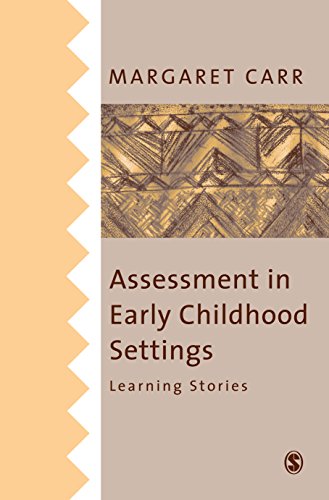Assessment in Early Childhood Settings Learning Stories
Margaret Carr is a Professor of Education at the Wilf Malcolm Institute of Educational Research at the University of Waikato, in Hamilton, New Zealand. Before she joined the Faculty of Education at Waikato, she was a geographer at Victoria University in Wellington, New Zealand, where there was a strong focus by the professors on social and cultural change. This formed a background for her interest in the role of education in society, and in Hamilton she gained a qualification in early childhood education and worked as a kindergarten teacher before becoming a lecturer in education at the university. Her PhD thesis was entitled ‘Technological Practice in Early Childhood as a Dispositional Milieu’. New Zealand has provided a number of opportunities for professors to research with early childhood teachers on topics chosen by the teachers, and Margaret has frequently published with teachers. Learning Stories as an assessment practice was developed for the 1996 Te Whariki bicultural curriculum (later revised in 2017); the development of narrative assessment is told in the 2001 Sage book, Assessment in Early Childhood Settings: Learning Stories, and further developed in the 2012 Sage book Learning Stories: Constructing Learner Identities in Early Education. The latter book was co-authored with Wendy Lee, and this partnership has combined academic and professional wisdom in many publications and presentations over many years. ... Read more Read less
Assessment in Early Childhood Settings shows that an early childhood setting can be described as a learning place in which children develop learning dispositions such as resilience in the face of uncertainty, confidence to express their ideas, and collaborative and thoughtful approaches to problem-solving. These dispositions provide the starting point for life-long learning. The author asks: How can we assess and track children's learning in the early years in a way that includes learning dispositions and avoids the pitfalls of over-formal methods, whilst being helpful for practitioners, interesting for families, and supportive for learners? The book describes a way of assessment that stays close to the children's real experiences and provides an alternative to mechanistic and fragmented approaches, shows how practitioners can assess what really matters: those learning dispositions (interest, involvement and perseverance for example) that provide a foundation for life-long learning The book is about weaving theory and practice: theorizing development and learning as reflected in assessment practice. The author also argues that unless we find ways to assess complex outcomes in early childhood they will be excluded from the teaching and the learning. Simple and low level outcomes and goals will take their place. The theoretical ideas and arguments are illustrated throughout by transcripts and stories of children in a range of early childhood settings. At every turn in the journey it asks: How is this reflected in a real life context? It documents the voices of children, practitioners and parents as the learning story develops. ... Read more Read less











